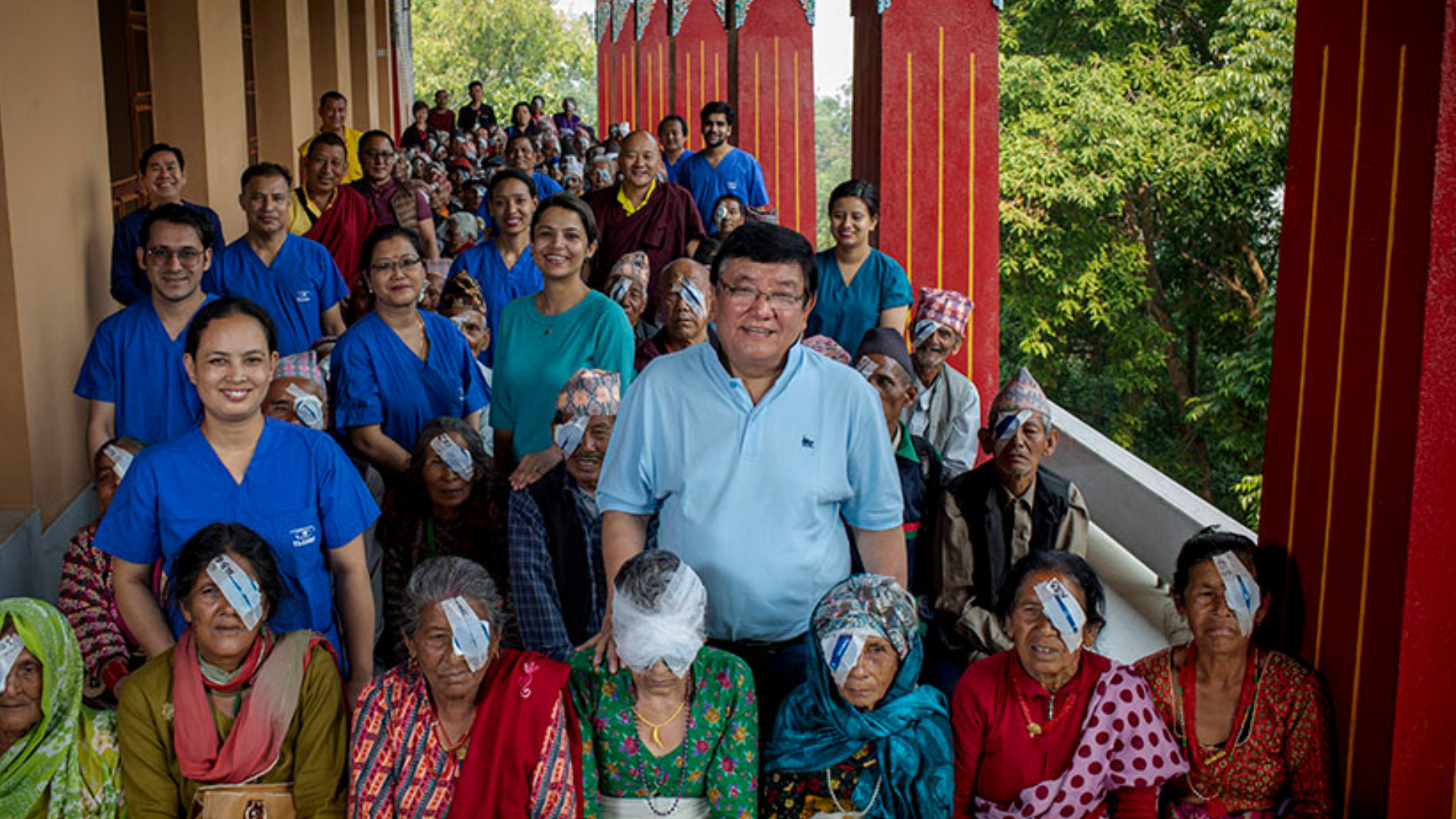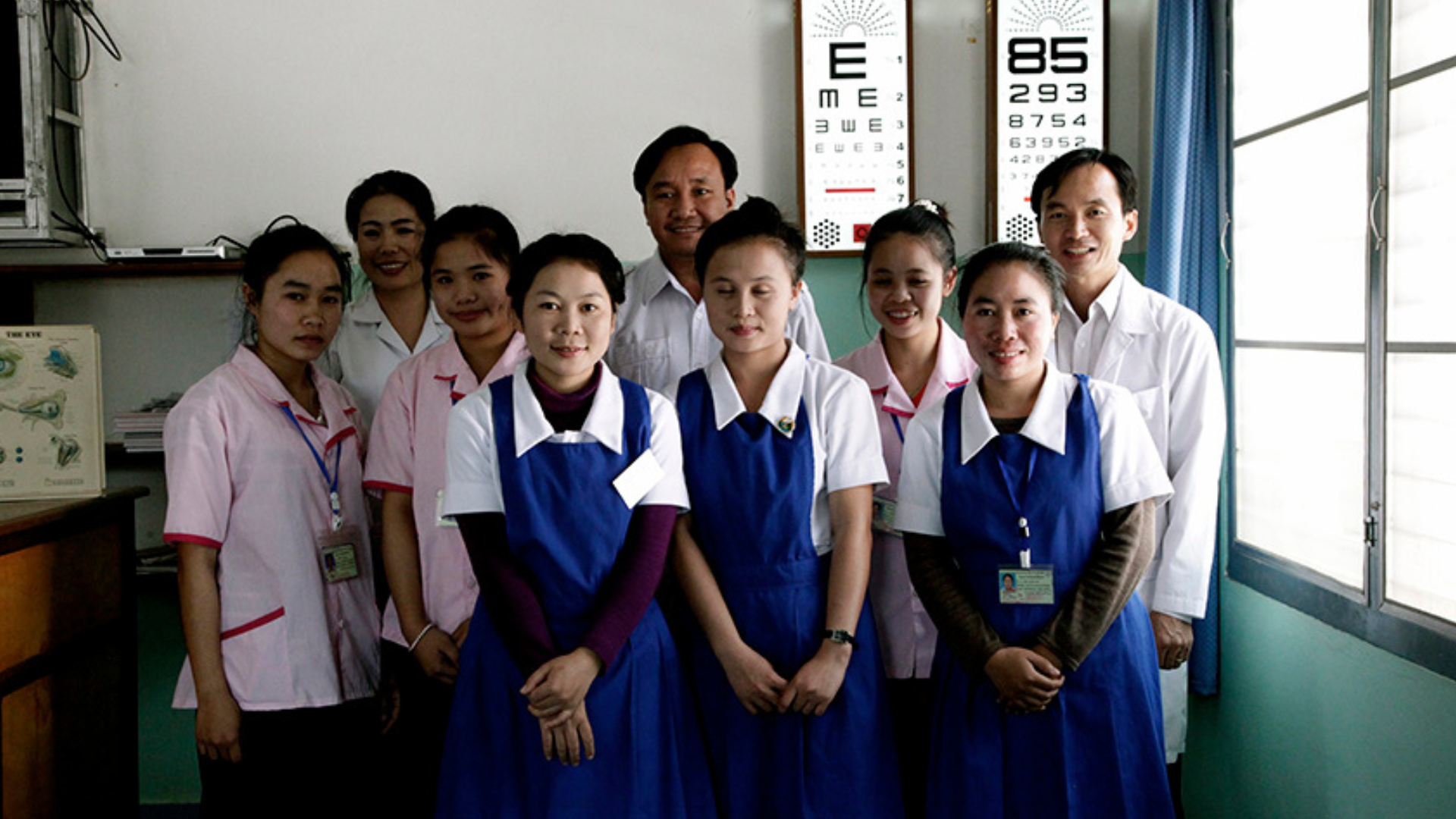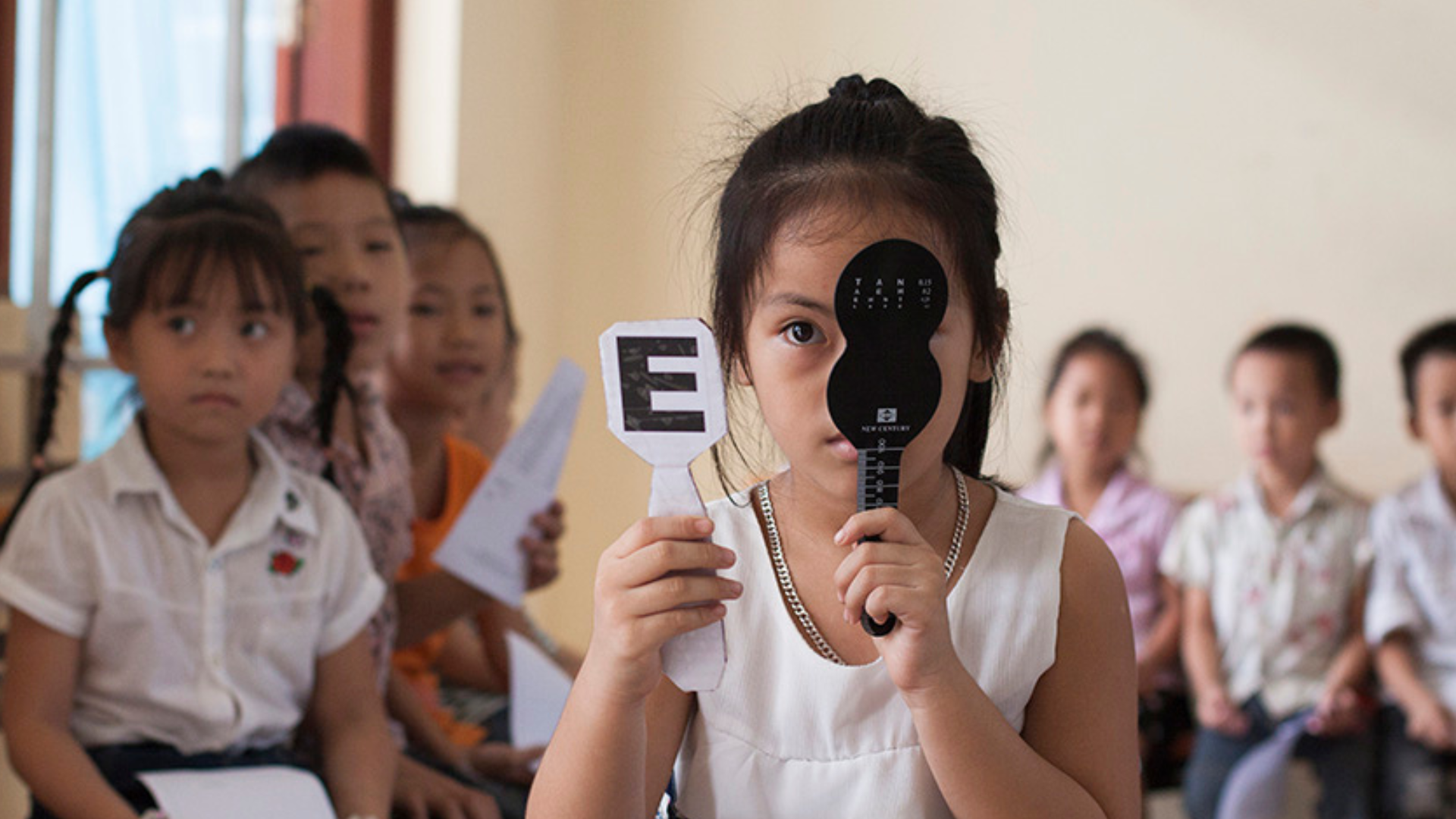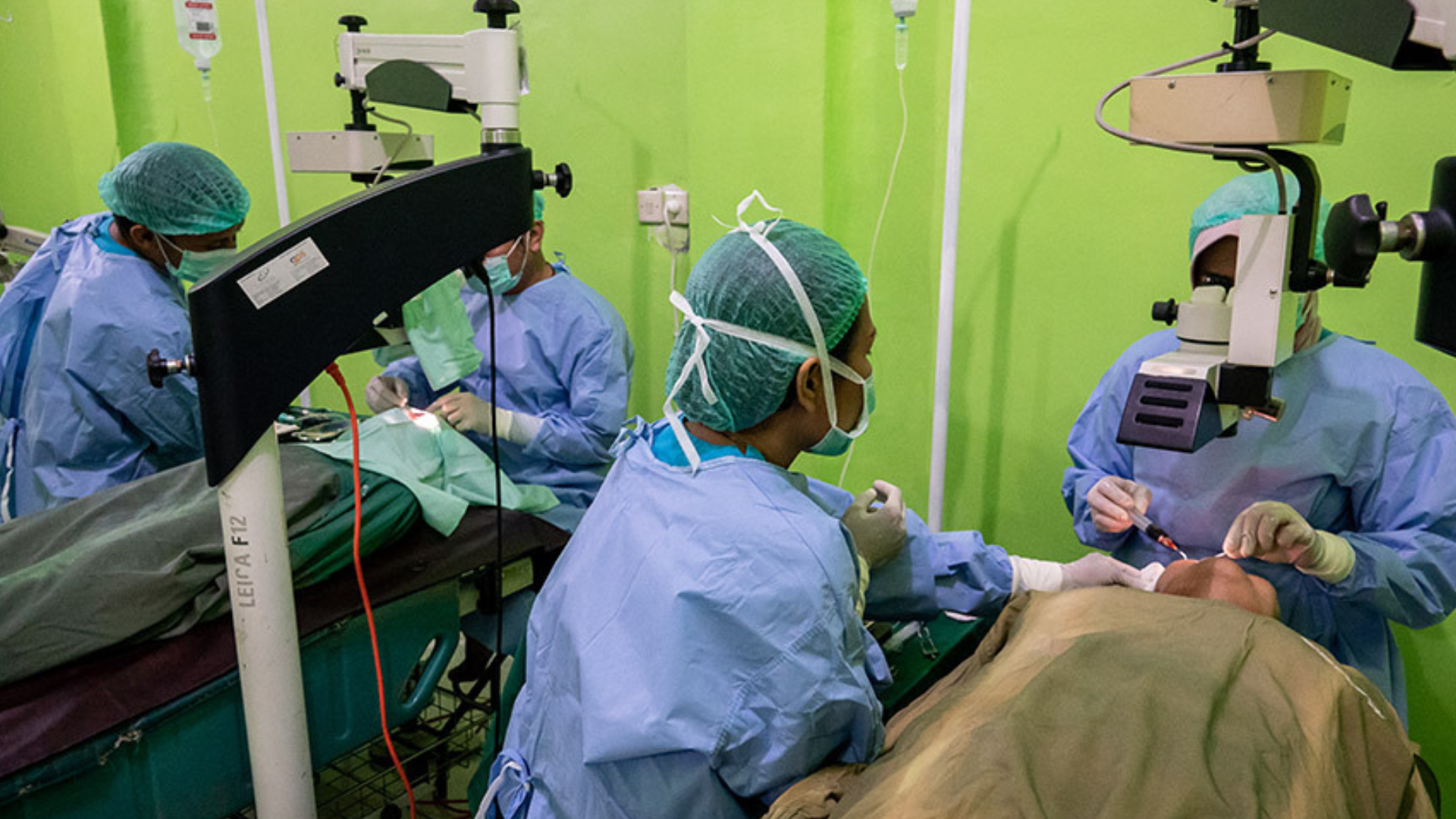Philanthropy
What is impact philanthropy?

Impact philanthropy is considered charitable giving that creates lasting change in society. The purpose of philanthropy is to create social change and a fairer world, where everyone has equal opportunities and access to resources
In a hurry?
Click on the link below to go straight to the section you’re interested in the most:
1. Impact philathropy focuses on creating social change
Impact philanthropy is all about planning your giving and supporting a not-for-profit in order to solve a specific problem that may be the root of social and economic inequity. This involves learning about a charitable organisation’s work and how they work to address the issue they want to eliminate.
For instance, in collaboration with our supporters, The Fred Hollows Foundation works to restore sight, which is about promoting good eye health. Beyond that, it is also about empowering marginalised communities so that they can participate in social and economic settings within their community.
Not being able to see can impact a person’s mortality rate, particularly in many of the countries where The Foundation works. That is why it is important to strengthen local health systems in the countries where we work, so that under-resourced communities are able to access high quality and ongoing eye care locally, without having to rely on fly-in fly-out health workers from other countries. Read about how we are strengthening the global eye health workforce.
For instance, in collaboration with our supporters, The Fred Hollows Foundation works to restore sight, which is about promoting good eye health. Beyond that, it is also about empowering marginalised communities so that they can participate in social and economic settings within their community.
Not being able to see can impact a person’s mortality rate, particularly in many of the countries where The Foundation works. That is why it is important to strengthen local health systems in the countries where we work, so that under-resourced communities are able to access high quality and ongoing eye care locally, without having to rely on fly-in fly-out health workers from other countries. Read about how we are strengthening the global eye health workforce.

Photo credit: Michael Amendolia
2. Impact philathropy relies on evidence to solve problems
Philanthropists who make high impact donations can solve problems affecting the global majority, such as poverty, homelessness, climate change, and gender inequity, to name a few. See how philanthropy can stop preventable blindness from costing billions.
At The Fred Hollows Foundation, we are committed to investing in eye health research to improve our impact and reach more people with accessible, cost-effective, and sustainable eye health. Learn about the importance of investing in eye health research.
At The Fred Hollows Foundation, we are committed to investing in eye health research to improve our impact and reach more people with accessible, cost-effective, and sustainable eye health. Learn about the importance of investing in eye health research.

Photo credit: Hanh Tran
3. Impact philathropy is cost-effective an results driven
Impact giving is about doing the most good, similar to effective altruism. Effective altruism is a philosophy that promotes charitable giving in a more considered manner, relying on evidence to decide how to spend your dollar effectively so that there is lasting impact and so that society benefits as a whole.
A study conducted by PricewaterhouseCoopers (PwC) highlighted that investing in vision is not only cost-effective but its positive impact will be felt for generations to come. The study found that for every $AU1 invested, there is a $AU4 economic gain, reducing the impact of vision loss for an entire community.
This means that restoring sight can also ease poverty around the world. Ending avoidable blindness will allow countries to improve the economic prospects of individual people and their communities, which in turn boost the country’s economy.
A study conducted by PricewaterhouseCoopers (PwC) highlighted that investing in vision is not only cost-effective but its positive impact will be felt for generations to come. The study found that for every $AU1 invested, there is a $AU4 economic gain, reducing the impact of vision loss for an entire community.
This means that restoring sight can also ease poverty around the world. Ending avoidable blindness will allow countries to improve the economic prospects of individual people and their communities, which in turn boost the country’s economy.

Photo credit: Ben Midberry
4. The Fred Hollows Foundation is a high impact charity
Professor Fred Hollows started The Foundation because he wanted a more equitable world, where everyone had access to high quality eye care. This is because he trained to be an ophthalmologist, and as an eye doctor he saw the blatant inequities that existed in eye care in Australia.
Witnessing rare infectious eye diseases like trachoma affecting Aboriginal and Torres Strait Islander communities in large numbers when the rest of Australia didn’t have a single case, shocked Fred. He clearly saw a correlation between these poorer health conditions for these marginalised communities and a lack of proper health care being available to them.
Witnessing rare infectious eye diseases like trachoma affecting Aboriginal and Torres Strait Islander communities in large numbers when the rest of Australia didn’t have a single case, shocked Fred. He clearly saw a correlation between these poorer health conditions for these marginalised communities and a lack of proper health care being available to them.
As well as this, Fred saw inequities in health between western countries and developing nations. What he saw in Eritrea, Nepal and Vietnam in particular led him to label them as the cataract triangle. Fred saw the need for factories to produce affordable intraocular lenses (IOLs) in these countries. IOLs are used to treat cataract, and he knew that to provide affordable eye care in developing countries, it was necessary to significantly cut the cost of production. He sought to empower local communities by founding lens factories in Nepal and Eritrea. The lenses were expensive when made in the United States or Australia, but cheap and accessible when made locally.
The Foundation continues Fred’s legacy by investing in innovative models of sustainable eye care, especially for marginalised populations in under-resourced communities. The majority of the world’s blind, 90% in fact, live in low and middle income countries. By helping to create an efficient and sustainable eye health system in the 25 countries where we work, The Foundation is reaching more people and helping end avoidable blindness.
This is one of the reasons why The Life You Can Save (TLYCS) recognises The Fred Hollows Foundation as one of the most effective charities to donate to. TLYCS believes “that a highly effective charity will have robust evidence on the efficiency of its programs and its ability to execute good outcomes.”

Photo credit: Aildrene Tan
Interested in supporting The Fred Hollows Foudation?
- Would you like to invest in The Foundation’s vision to end avoidable blindness? Find out more about Philanthropy and Major gifts.
- Is your company interested in becoming The Fred Hollows Foundation’s corporate partner? Find out more.
COVER PHOTO: The Fred Hollows Foundation